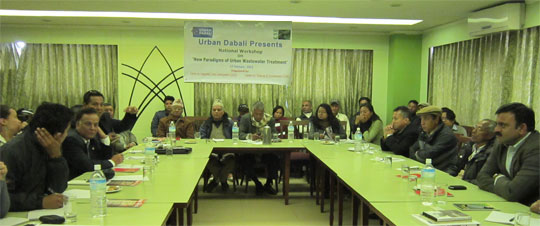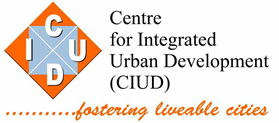CIUD, a civic society organization in Kathmandu is aiming at the revival of the Bagmati River System that has significant ecological, cultural and religious importance in Nepal. The unprecedented rate of human intervention in Kathmandu valley has polluted the river heavily which made an assault to the sanctity of the rivers. The Bagmati Action Plan (BAP) (2009 -2014) envisages a strong commitment to conserve the Bagmati River System.
CIUD, a civic society organization in Kathmandu is aiming at the revival of the Bagmati River System that has significant ecological, cultural and religious importance in Nepal. The unprecedented rate of human intervention in Kathmandu valley has polluted the river heavily which made an assault to the sanctity of the rivers. The Bagmati Action Plan (BAP) (2009 -2014) envisages a strong commitment to conserve the Bagmati River System. The key issues identified in BAP are decrease in water discharge because of water diversion in upstream of the river, narrowing of river due to sand mining, degradation of river water quality, river side land encroachment and unauthorized and unmanaged squatter settlements in downstream regions.

With the aim to develop a strategy for urban waste water management and treatment methods to stop further deterioration of the Bagmati river water quality, a half day session was organized by CSE jointly with CIUD with the participation of around 45 professionals / stakeholders from Nepal directly involved in the area sustainable water/wastewater management.
The workshop was primarily focused to share the knowledge of new paradigms of wastewater treatment and management in South Asian context. Executive Director of CIUD, Mr Prakash Amatya in his inaugural speech addressed the need to stimulate Nepal – India exchanges among key players on the theme of sustainable decentralised water/ wastewater management in urban environment and also to stimulate networking and develop partnerships between CSE and Nepalese key players in the field of urban wastewater management. Ms Sangita Singh, CIUD Nepal presented an overview of Nepal’s urban water/ wastewater management scenario including highlights of Bagmati Action Plan.
Dr Suresh Rohilla, Programme Director, Urban Water Management at CSE highlighted the need to rethink and rework the overall water/wastewater management in South Asia. Dr Rohilla stated the new paradigm of water management should include decentralized wastewater treatment, water efficiency and conservation including reuse/recycle. Other key speakers at the meeting included – Prof Vinod Tare from IIT Kanpur who presented the learnings from National River Ganga Basin Plan in India and Mr Manu Bhatnagar, INTACH who discussed potential of bioremediation for treating wastewater in lakes as well as on-channel treatment of sewage flowing in the drains.
This session included a public screening of the CSE film “Clean Your Act” – a documentary showing sustainable and affordable decentralized wastewater treatment systems implemented in India.
The participants included Nepal Government officials such as the Chairman of High powered Commission for Integrated Development of the Bagmati Civilization (HPCIDBC), officials from Water and Energy Commission Secretariat, Kirtipur Municipality, academicians and NGOs and media groups working in this area.
